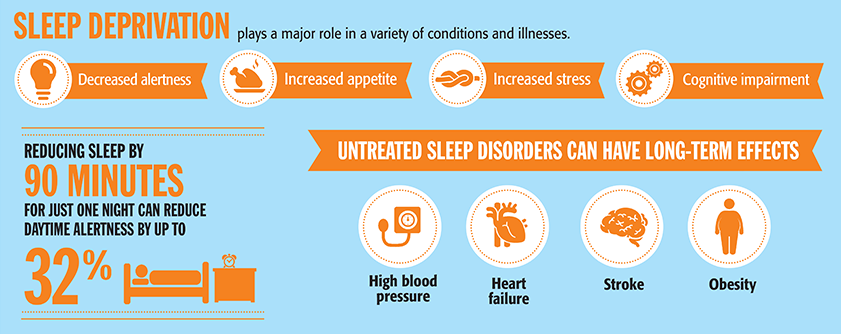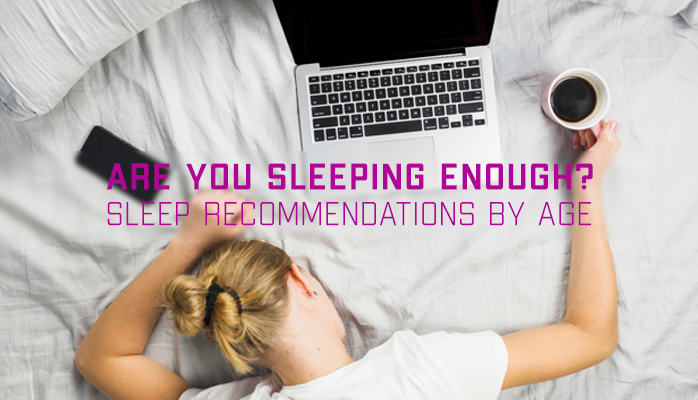Sleep and Age
Your sleep needs are largely moderated by a single factor; age. Age dictates the amount of sleep that one needs, and will also dictate sleep cycles, or circadian rhythm. This is an important consideration when trying to determine the appropriate amount of sleep because sleep loss can occur through:
- You are not sleeping long enough during the night
- You are not sleeping in sync with your circadian rhythm
Outside of age, there are other personal factors that can impact the amount of sleep that one needs. Lifestyle, number of kids, work schedule, etc. can all impact the amount of sleep necessary. In this blog post, we are going to discuss sleep requirements for children and adults, and how sleep changes over time.
How Much Sleep Do Adults Need
Adults should be getting between 7-9 hours of sleep every night. These figures are extensively researched, and those that claim they can function with less than 7 hours, may be able to survive, but are not thriving. Getting adequate sleep, however, can help one thrive.
Lack of sleep leads to lower quality of life, lower life expectancy, many medical conditions (such as heart disease and depression), and a decrease in daily performance.
Age-related sleep changes often include:
- Earlier bedtime
- Earlier wake time
- Difficulties sleeping at night
- Decreased quality [Sleep Association])
- More frequent naps
It’s extremely important to note that sleep patterns change, but the need for getting enough sleep does not. What’s important about this is that you should listen to your body and try and find a pattern of sleep that allows you to feel rested and thriving.
How Much Sleep Do Children Need?
Children need more sleep than adults. The younger the child, the more sleep they need. This sleep is acquired through sleeping longer throughout the night and napping throughout the day. Below are minimum, maximum, and “sweet spot” amount of sleep that is recommended for children [Sleep Foundation].
- Age 0-4 months
- 11-19 hours; Recommended 14-17 hours.
- Age 4-12 months
- 10-18 hours; Recommended 12-15 hours.
- Age 1-3 years
- 9-16 hours; Recommended 11-14 hours.
- Age 3-5 years
- 8-14 hours; Recommended 10-12 hours
- Age 6-13 years
- 7-12 hours; Recommended 9-11 hours
- Age 13-18 years
- 7-11 hours; Recommended 8-10 hours
All children are different and have unique needs, so working with them to figure out the right amount of sleep allows children to perform at an adequate level.
Signs of Sleep Deprivation in Children

Children will show signs of sleep deprivation when they aren’t getting enough sleep. Their signs and symptoms will be different than adults. They can be defiant, crabby, and hyperactive, indicating that they are struggling from chronic sleep deprivation.
These signs of sleep deprivation in children include:
- Behavior that is consistent with ADHD signs
- Hyperactivity
- Difficulty concentrating
- Defiant behavior
- Impulsive behavior
- Excessive sleeping on weekends
- Falling asleep during the day, such as at school
- Poor or erratic performance at school
- Hard time waking up in the morning
In fact, there is an increasing body of evidence from studies that children with chronic sleep problems can be misdiagnosed with ADHD.
There are several lifestyle reasons for sleep deprivation in children:
- Erratic sleep schedule
- No bedtime routine
- Too much screen time
- Not enough exercise
- Room that is too loud, bright, or full of distractions during the night
Sleep Disorder Causes of Sleep Deprivation in Children and Adults
Besides lifestyle factors, sleep disorders can lead to sleep deprivation in children and adults. The most common sleep disorders are:
- Sleep apnea
- Insomnia
- Circadian rhythm disorders
- Restless leg syndrome (more common in older people)
- Night terrors (more common in children)
If you or someone you know is struggling to get an adequate amount of sleep, then please click the orange button below to take a free online sleep test and talk with one of our slepe health professionals.


